We’re delighted to offer a selection of latest releases from our core subjects of Anthropology, Environmental Studies, Gender Studies, History, Medical Anthropology, and Mobil Studies.
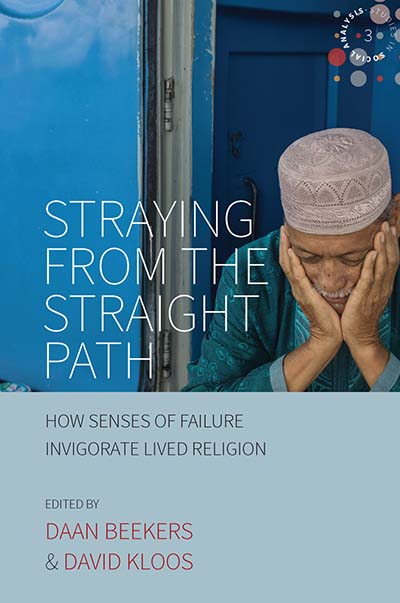 STRAYING FROM THE STRAIGHT PATH
STRAYING FROM THE STRAIGHT PATH
How Senses of Failure Invigorate Lived Religion
Edited by Daan Beekers and David Kloos
Volume 3, Studies in Social Analysis
“This rich collection of ethnographic studies of failure goes a long way in moving anthropological accounts of ethical and religious life beyond false dichotomies, including the very distinction between failure and success itself.” · Michael Lambek, Canada Research Chair, University of Toronto Scarborough
If piety, faith, and conviction constitute one side of the religious coin, then imperfection, uncertainty, and ambivalence constitute the other. Yet, scholars tend to separate these two domains and place experiences of inadequacy in everyday religious life – such as a wavering commitment, religious negligence or weakness in faith – outside the domain of religion ‘proper.’
Straying from the Straight Path breaks with this tendency by examining how self-perceived failure is, in many cases, part and parcel of religious practice and experience. Responding to the need for comparative approaches in the face of the largely separated fields of the anthropology of Islam and Christianity, this volume gives full attention to moral failure as a constitutive and potentially energizing force in the religious lives of both Muslims and Christians in different parts of the world.
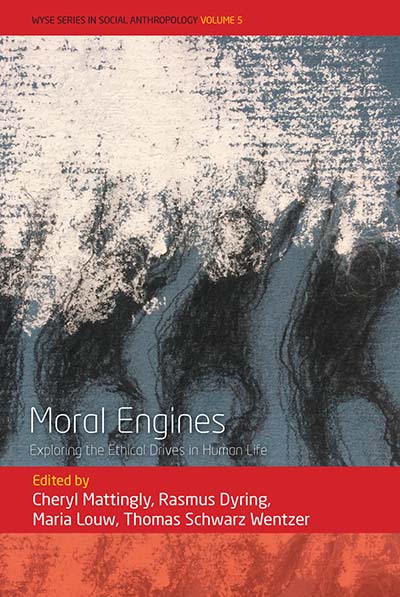 MORAL ENGINES
MORAL ENGINES
Exploring the Ethical Drives in Human Life
Edited by Cheryl Mattingly, Rasmus Dyring, Maria Louw, and Thomas Schwarz Wentzer
Volume 5, WYSE Series in Social Anthropology
In the past fifteen years, there has been a virtual explosion of anthropological literature arguing that morality should be considered central to human practice. Out of this explosion new and invigorating conversations have emerged between anthropologists and philosophers. Moral Engines: Exploring the Ethical Drives in Human Life includes essays from some of the foremost voices in the anthropology of morality, offering unique interdisciplinary conversations between anthropologists and philosophers about the moral engines of ethical life, addressing the question: What propels humans to act in light of ethical ideals?
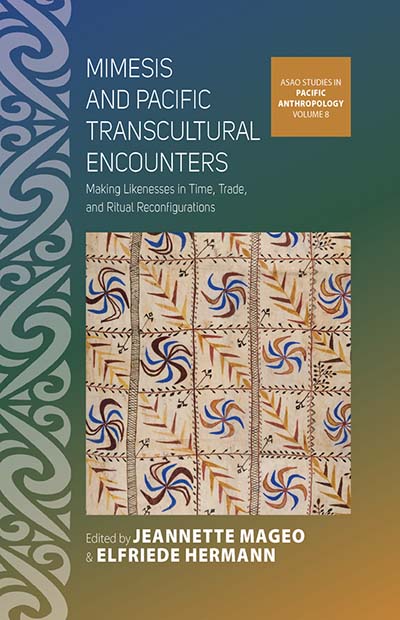 MIMESIS AND PACIFIC TRANSCULTURAL ENCOUNTERS
MIMESIS AND PACIFIC TRANSCULTURAL ENCOUNTERS
Making Likenesses in Time, Trade, and Ritual Reconfigurations
Edited by Jeannette Mageo and Elfriede Hermann
Volume 8, ASAO Studies in Pacific Anthropology
How do images circulating in Pacific cultures and exchanged between them and their many visitors transform meanings for all involved? This fascinating collection explores how through mimesis, wayfarers and locales alike borrow images from one another to expand their cultural repertoire of meanings or borrow images from their own past to validate their identities.
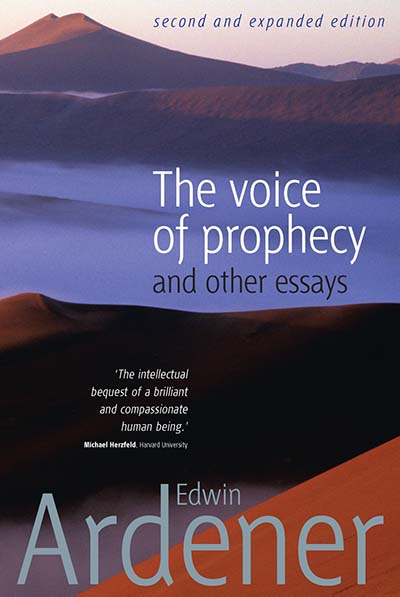 NEW & REVISED EDITION
NEW & REVISED EDITION
THE VOICE OF PROPHECY
And Other Essays
Edwin Ardener†
Second and Expanded Edition
Foreword by Michael Herzfeld, Harvard University
“Ardener is the Czerny of anthropology, concerned with technical training, with how to think productively within the discipline. He should be read above all by postgraduates and postdoctoral researchers, whose formation is not yet ‘completed.’…As exercises to form the anthropological mind, these papers are both unique and irreplaceable.” · JRAI
“The intellectual bequest of a brilliant and compassionate human being.” · Michael Herzfeld, Harvard University
“His voice is as deeply needed as ever. Ardener anticipated numerous central issues in the social sciences today…This publishing event will achieve something much more significant still: a long-overdue recognition that Ardener not only forged ahead of today’s mainstream but bequeathed a legacy of ideas that can regenerate and redirect anthropological thought today. This new edition will allow a new and more receptive audience to come to grips with Ardener’s distinctive mode of analysis and understanding, bringing it more clearly into the mainstream of anthropological thought not only as a historical contribution but also, and especially, as a source of new reflections.” (From the Foreword)
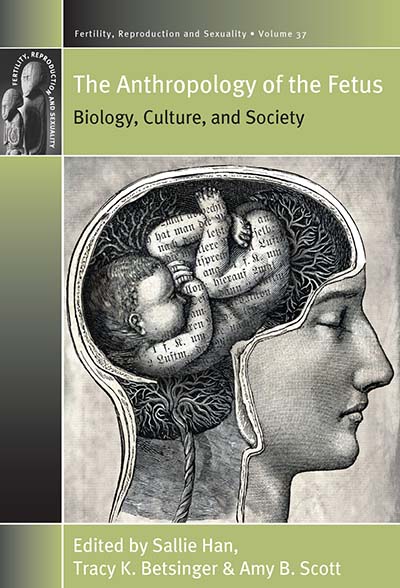 THE ANTHROPOLOGY OF THE FETUS
THE ANTHROPOLOGY OF THE FETUS
Biology, Culture, and Society
Edited by Sallie Han, Tracy K. Betsinger, and Amy B. Scott
Foreword by Rayna Rapp
Volume 37, Fertility, Reproduction and Sexuality: Social and Cultural Perspectives
As a biological, cultural, and social entity, the human fetus is a multifaceted subject which calls for equally diverse perspectives to fully understand. Anthropology of the Fetus seeks to achieve this by bringing together specialists in biological anthropology, archaeology, and cultural anthropology. Contributors draw on research in prehistoric, historic, and contemporary sites in Europe, Asia, North Africa, and North America to explore the biological and cultural phenomenon of the fetus, raising methodological and theoretical concerns with the ultimate goal of developing a holistic anthropology of the fetus.
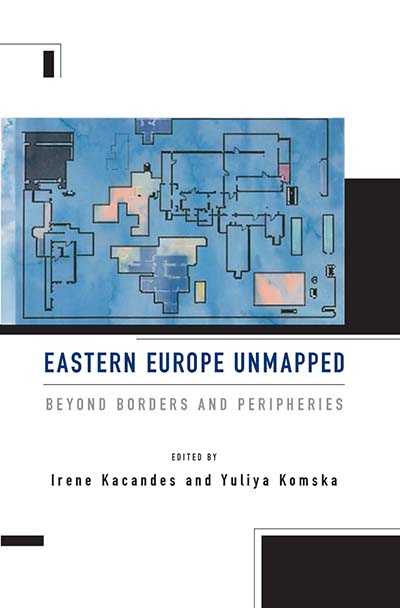 EASTERN EUROPE UNMAPPED
EASTERN EUROPE UNMAPPED
Beyond Borders and Peripheries
Edited by Irene Kacandes and Yuliya Komska
Arguably more than any other region, the area known as Eastern Europe has been defined by its location on the map. Yet its inhabitants, from statesmen to literati and from cultural-economic elites to the poorest emigrants, have consistently forged or fathomed links to distant lands, populations, and intellectual traditions. Through a series of inventive cultural and historical explorations, Eastern Europe Unmapped dispenses with scholars’ long-time preoccupation with national and regional borders, instead raising provocative questions about the area’s non-contiguous—and frequently global or extraterritorial—entanglements.
Read Introduction: A Discontiguous Eastern Europe
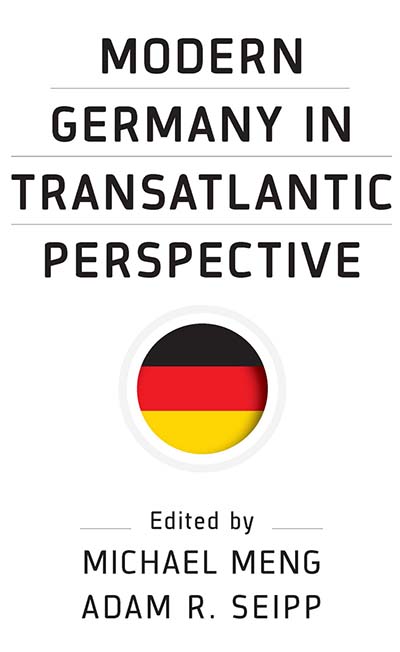 MODERN GERMANY IN TRANSATLANTIC PERSPECTIVE
MODERN GERMANY IN TRANSATLANTIC PERSPECTIVE
Edited by Michael Meng and Adam R. Seipp
Bringing together incisive contributions from an international group of colleagues and former students, Modern Germany in Transatlantic Perspective takes stock of the field of German history as exemplified by the extraordinary scholarly career of Konrad H. Jarausch. Through fascinating reflections on the discipline’s theoretical, professional, and methodological dimensions, it explores Jarausch’s monumental work as a teacher and a builder of scholarly institutions. In this way, it provides not merely a look back at the last fifty years of German history, but a path forward as new ideas and methods infuse the study of Germany’s past.
Read Introduction: From Ruination to Renewal: Konrad Jarausch’s Europe
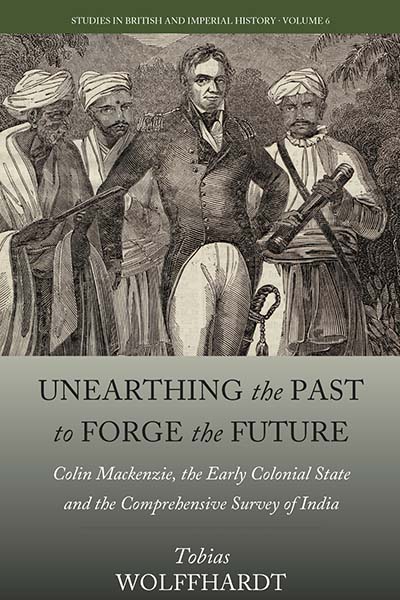 UNEARTHING THE PAST TO FORGE THE FUTURE
UNEARTHING THE PAST TO FORGE THE FUTURE
Colin Mackenzie, the Early Colonial State, and the Comprehensive Survey of India
Tobias Wolffhardt
Translated by Jane Rafferty
Volume 6, Studies in British and Imperial History
For much of the eighteenth and nineteenth centuries, the British East India Company consolidated its rule over India, evolving from a trading venture to a colonial administrative force. Yet its territorial gains far outpaced its understanding of the region and the people who lived there, and its desperate efforts to gain knowledge of the area led to the 1815 appointment of army officer Colin Mackenzie as the first Surveyor General of India. This volume carefully reconstructs the life and career of Mackenzie, showing how the massive survey of India that he undertook became one of the most spectacular and wide-ranging knowledge production initiatives in British colonial history.
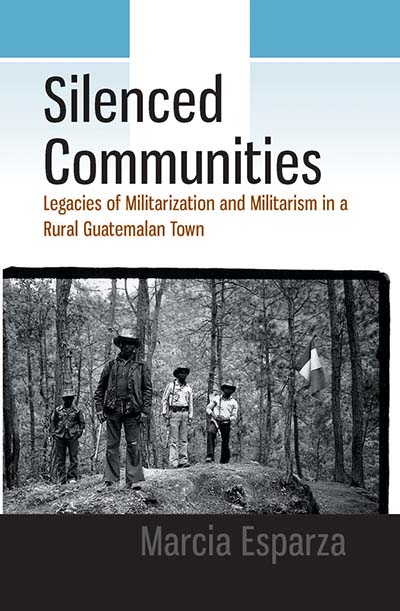 SILENCED COMMUNITIES
SILENCED COMMUNITIES
Legacies of Militarization and Militarism in a Rural Guatemalan Town
Marcia Esparza
Although the Guatemalan Civil War ended more than two decades ago, its bloody legacy continues to resonate even today. In Silenced Communities, author Marcia Esparza offers an ethnographic account of the failed demilitarization of the rural militia in the town of Santo Tomás Chichicastenango following the conflict. Combining insights from postcolonialism, subaltern studies, and theories of internal colonialism, Esparza explores the remarkable resilience of ideologies and practices engendered in the context of the Cold War, demonstrating how the lingering effects of grassroots militarization affect indigenous communities that continue to struggle with inequality and marginalization.
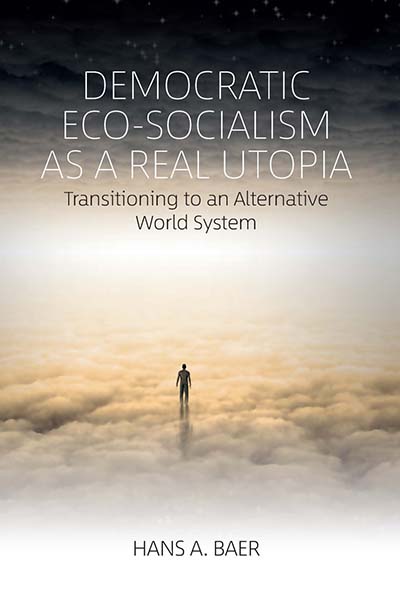 DEMOCRATIC ECO-SOCIALISM AS A REAL UTOPIA
DEMOCRATIC ECO-SOCIALISM AS A REAL UTOPIA
Transitioning to an Alternative World System
Hans A. Baer
As global economic and population growth continues to skyrocket, increasingly strained resources have made one thing clear: the desperate need for an alternative to capitalism. In Democratic Eco-Socialism as a Real Utopia, Hans Baer outlines the urgent need to reevaluate historical definitions of socialism, commit to social equality and justice, and prioritize environmental sustainability. Democatic eco-socialism, as he terms it, is a system capable of mobilizing people around the world, albeit in different ways, to prevent on-going human socio-economic and environmental degradation, and anthropogenic climate change.
Read Introduction
 GENDER IN GEORGIA
GENDER IN GEORGIA
Feminist Perspectives on Culture, Nation, and History in the South Caucasus
Edited by Maia Barkaia and Alisse Waterston
Afterword by Elizabeth Cullen Dunn
As Georgia seeks to reinvent itself as a nation-state in the post-Soviet period, Georgian women are maneuvering, adjusting, resisting and transforming the new economic, social and political order. In Gender in Georgia, editors Maia Barkaia and Alisse Waterston bring together an international group of feminist scholars to explore the socio-political and cultural conditions that have shaped gender dynamics in Georgia from the late 19th century to the present. In doing so, they provide the first-ever woman-centered collection of research on Georgia, offering a feminist critique of power in its many manifestations, and an assessment of women’s political agency in Georgia.
Read Introduction: Contextualizing Gender in Georgia: Nation, Culture, Power and Politics
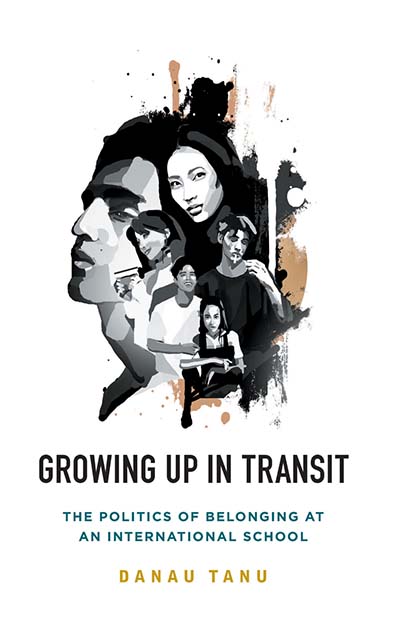 GROWING UP IN TRANSIT
GROWING UP IN TRANSIT
The Politics of Belonging at an International School
Danau Tanu
Foreword by Fazal Rizvi
In this compelling study of the children of serial migrants, Danau Tanu argues that the international schools they attend promote an ideology of being “international” that is Eurocentric. Despite the cosmopolitan rhetoric, hierarchies of race, culture and class shape popularity, friendships and romance on campus. By going back to high school for a year, Tanu befriended transnational youth, often called “Third Culture Kids”, to present their struggles with identity, belonging and internalized racism in their own words. The result is the first engaging, anthropological critique of the way Western-style cosmopolitanism is institutionalized as cultural capital to reproduce global socio-cultural inequalities.
Read Introduction: Unpacking “Third Culture Kids”
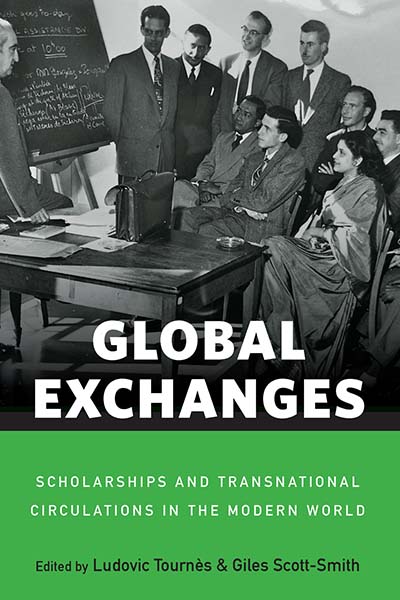 GLOBAL EXCHANGES
GLOBAL EXCHANGES
Scholarships and Transnational Circulations in the Modern World
Edited by Ludovic Tournès and Giles Scott-Smith
Exchanges between different cultures and institutions of learning have taken place for centuries, but it was only in the twentieth century that such efforts evolved into formal programs that received focused attention from nation-states, empires and international organizations. Global Exchanges provides a wide-ranging overview of this underresearched topic, examining the scope, scale and evolution of organized exchanges around the globe through the twentieth century. In doing so it dramatically reveals the true extent of organized exchange and its essential contribution for knowledge transfer, cultural interchange, and the formation of global networks so often taken for granted today.
NEW IN PAPERBACK:
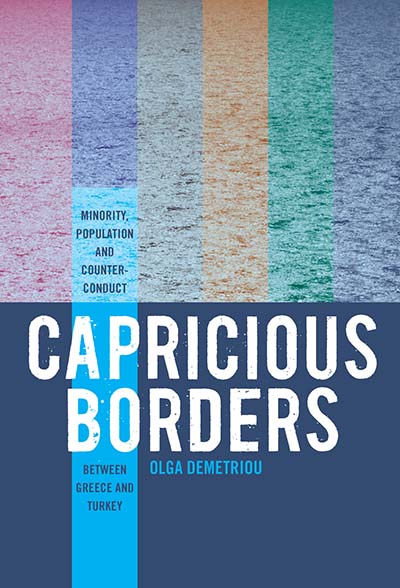 CAPRICIOUS BORDERS
CAPRICIOUS BORDERS
Minority, Population, and Counter-Conduct Between Greece and Turkey
Olga Demetriou
“…a book that is well placed to become an essential reading for anyone interested in the study of borders, minority rights, Greek-Turkish relations and politics in South-eastern Europe more broadly. Western Thrace is a region that is constantly undergoing political, spatial and demographic transformations and Demetriou already highlights in the conclusion and postscript new sets of questions that may guide future research.” · The Cyprus Review
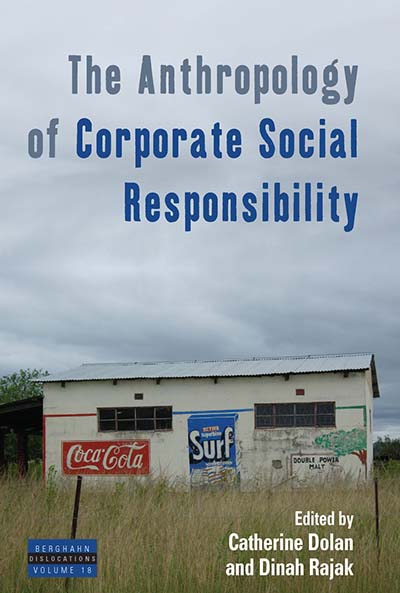 THE ANTHROPOLOGY OF CORPORATE SOCIAL RESPONSIBILITY
THE ANTHROPOLOGY OF CORPORATE SOCIAL RESPONSIBILITY
Edited by Catherine Dolan and Dinah Rajak
Afterword by Robert J. Foster
Volume 18, Dislocations
“Each chapter in this important book, in one way or another, interrogates the slippery and shady partnerships forming between transnational corporations, international development agencies, and NGOs to further augment and implement CSR programmes…If you think critically about corporations, add this to your collection.” · Journal of the Royal Anthropological Institute
Read Introduction: Towards an Anthropology of Corporate Social Responsibility
 BLOOD AND FIRE
BLOOD AND FIRE
Toward a Global Anthropology of Labor
Edited by Sharryn Kasmir and August Carbonella
Volume 13, Dislocations
“[This volume] draws upon long-term fieldwork to examine how labor struggles have faltered, become disconnected from the societal mission to advance the greater good, and the reactions and fallout from this change. Applying principles of global anthropology to the dilemma, Blood and Fire portrays an uncertain future. A thought-provoking and studious title, ideal for college library anthropology shelves.” · Library Bookwatch
Read Introduction: Toward a Global Anthropology of Labor
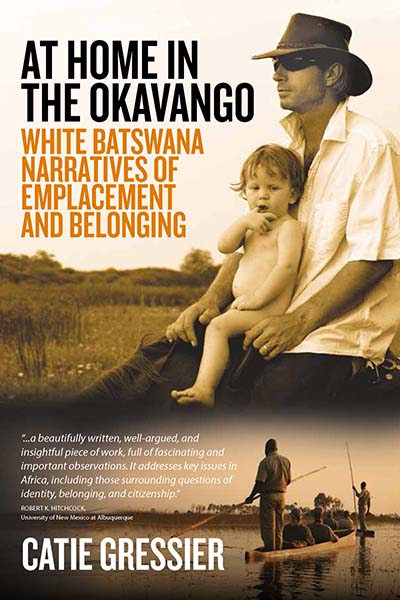 AT HOME IN THE OKAVANGO
AT HOME IN THE OKAVANGO
White Batswana Narratives of Emplacement and Belonging
Catie Gressier
“This book is an important contribution to anthropological studies of belonging, minorities, settler populations, whiteness, identity, tourism, and autochthony. A thoroughly thought-provoking, intimate, and detailed ethnography that is worth reading to gain an insight into how a white community in a postcolonial nation construct their belonging as Africans.” · American Anthropologist
Read Introduction: Waiting for the Flood
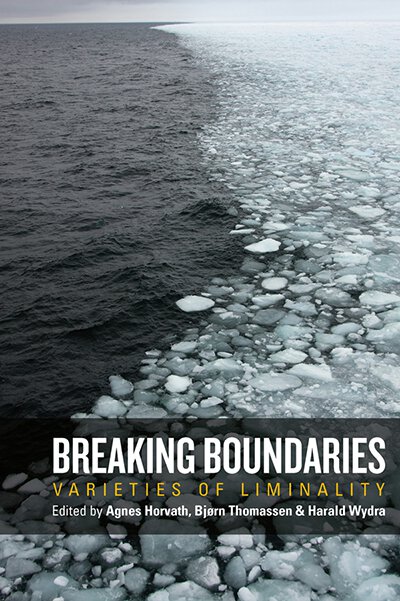 BREAKING BOUNDARIES
BREAKING BOUNDARIES
Varieties of Liminality
Edited by Agnes Horvath, Bjørn Thomassen, and Harald Wydra
“In well integrated chapters, the [volume] proves the relevance of the concept across disciplines, particularly for the study of moments of instability and possibility, as well as for understanding the transformative potential of participation… In addition to helping one understand in-between experiences overall, [it] invites the reader to rethink the complicated relation between individual agency, social order and cultural transmission… a remarkable contribution to sociology, anthropology and critical theory.” · European Journal of Cultural and Political Sociology
Read Introduction: Liminality and the Search for Boundaries
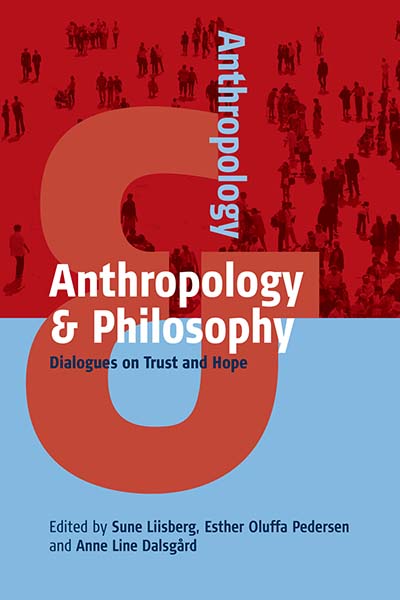 ANTHROPOLOGY & PHILOSOPHY
ANTHROPOLOGY & PHILOSOPHY
Dialogues on Trust and Hope
Edited by Sune Liisberg, Esther Oluffa Pedersen and Anne Line Dalsgård
Volume 4, Anthropology & …
“This volume is a serious, innovative, and patient attempt to meet disciplinary difference with candour, and to work beyond it; it is imbued with the sobriety and good faith of its contributors. It also upholds a kind of tradition in (what might now be termed) ‘thinking outside the box’ that characterises, certainly on the anthropological side of the fence, the work of some of the most innovative and inspirational figures.” · Anthropos
Read Introduction: Trust and Hope: An Introduction
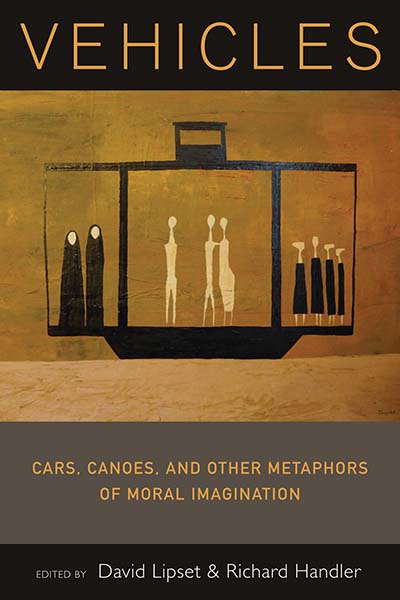 VEHICLES
VEHICLES
Cars, Canoes, and Other Metaphors of Moral Imagination
Edited by David Lipset and Richard Handler
“The essays in this collection offer fresh perspectives on the social role of transportation. I appreciated the weight given to Pacific cultures, which are not as common in conversations about mobility writ large. Though they do undoubtedly use anthropological methods and ask anthropological questions, they also model innovative ways for discussing how technologies enable their drivers and passengers to engage in an embodied relationship to the past.” · Technology and Culture
